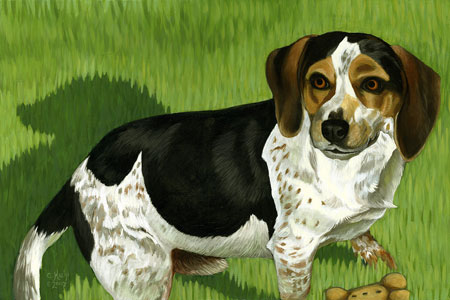
Art and nature have always played an important role in Cynthia Kulp¹s life, drawing and painting from the first time she can remember. She received her first oil painting set at the age of 7, which began a life-long exploration and passion for painting.
While attending Rhode Island School of Design, she diligently studied color theory and animal anatomy at RISD's famous Nature Lab. Cynthia took side trips to Harvard's Peabody Museum where literally thousands of preserved animals are kept. Later at RISD, Cynthia traveled to Rome, Italy where she studied Renaissance and early Dutch painters in detail as well as the old masters¹ materials and techniques. The narrative aspect of their work fascinated her.
At that time, Cynthia discovered a new obsession, which were parrots. She eagerly devoured information and became acquainted with several bird breeders in the area. Cynthia has spent almost 15 years raising and studying parrots. She has written articles for bird related magazines such as Companion Parrot Quarterly and AFA Watchbird in addition to working with many parrot conservation organizations such as WPT, RSCF and CPQ raising money through donated paintings.
Cynthia shares her household with many species of parrots, at least one chicken and 4 dogs. There are plenty of models for her paintings at any given time. She finds their intelligence, sensitivity and habits unendingly fascinating. There is limited written information on birds' quirky behaviors. Most that is known is handed down by word of mouth from experienced birds owners and breeders. Only within the past 5 or so years have scientists actually attempted to study parrots in the wild.
Cynthia imparts a narrative feel to the birds she paints. It not only reveals the "characters" in a piece but also expresses a passage of time with the still image. Specific narrative details infer a past, present and future within the characters of the work. One has to be intimately familiar with the subject in order to identify such tiny details. It is not absolutely essential to be familiar with the subject however. The piece can simply be enjoyed on its own technical merits.
